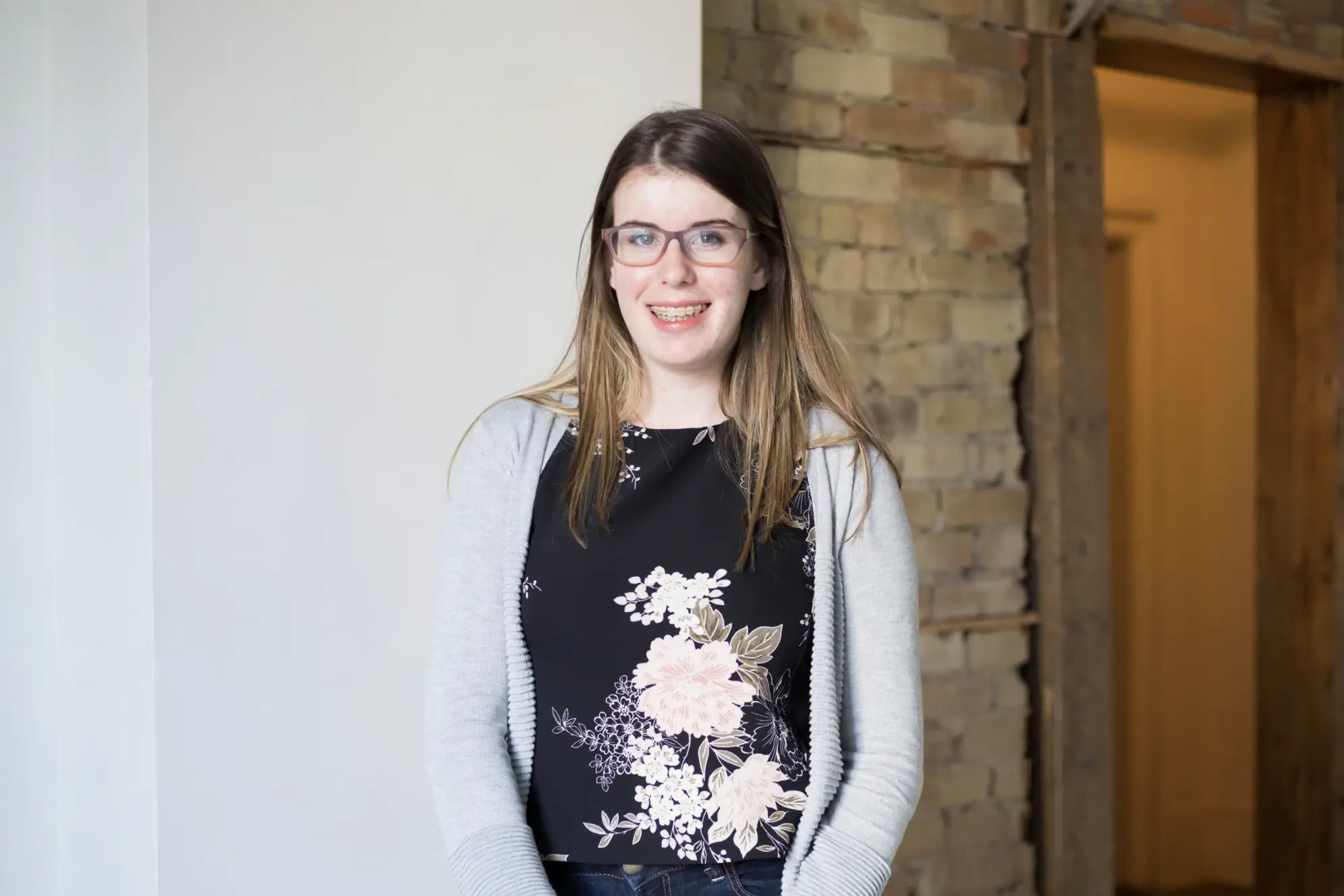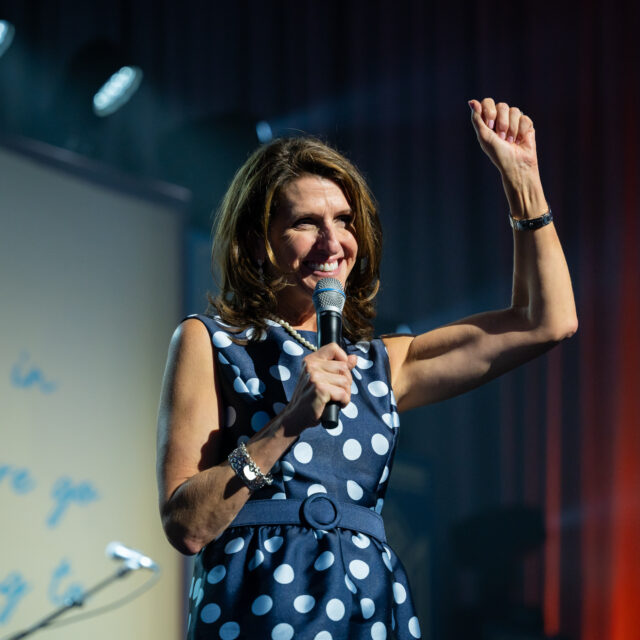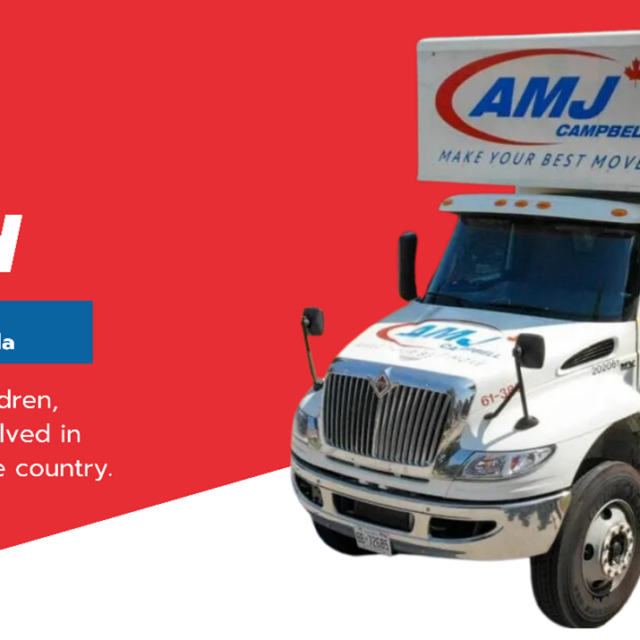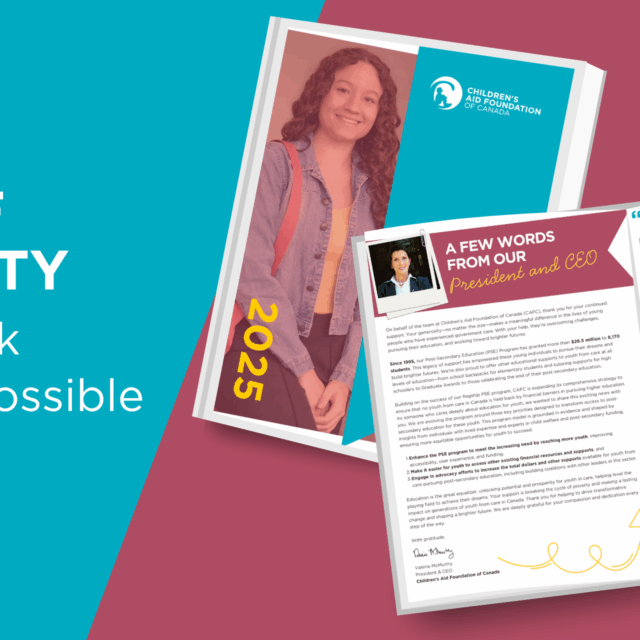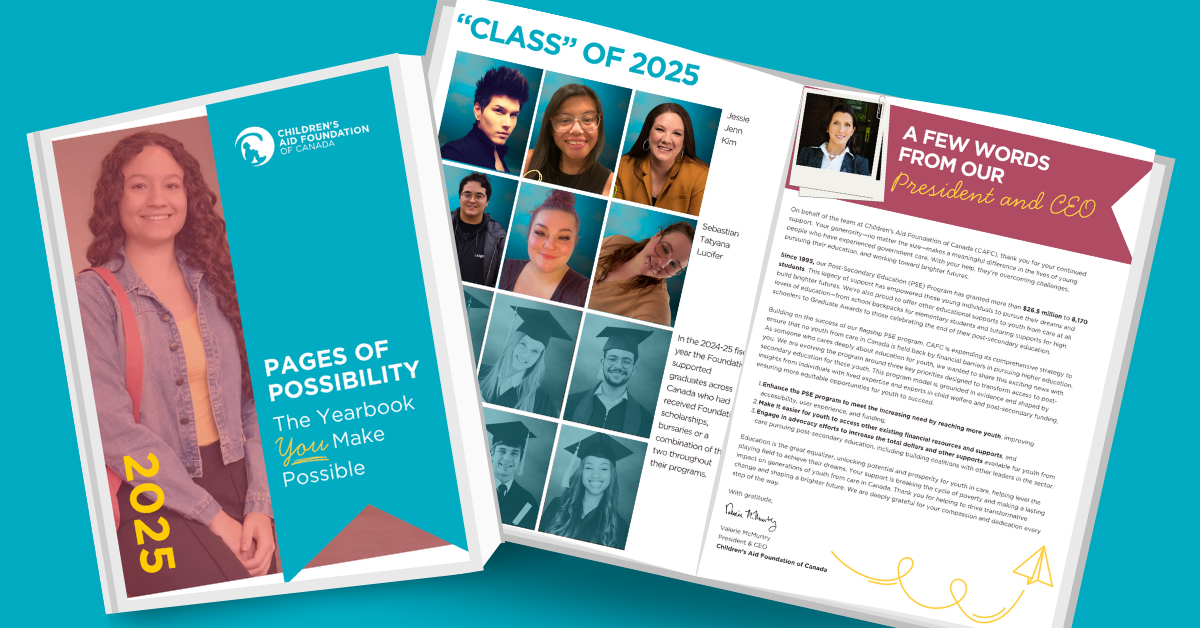KATE spent the majority of her childhood in foster care. Entering the child welfare system at just 10-months due to severe neglect and malnourishment, she returned to live with her biological family briefly before permanently entering care at the age of four. Despite living with a stable foster family, she struggled to build her identity and confidence, and eventually moved-in with her sister at the age of 15, before transitioning to independence at 17. This adjustment resulted in her working 40 hours a week, while also attending high school. KATE seriously questioned whether she would be able to afford post-secondary school. Fortunately, with scholarship funding from the Foundation, she is now a biomedical student at Brock University, as well as a mental health and wellness advocate. One day, she hopes to become a physician through the military.
*The opinions and views expressed in this article are that of the youth in profile, and not necessarily reflective of the official opinion or position of Children’s Aid Foundation of Canada.
Growing-up in care you might not get a great foster family or many opportunities, and you might be on your own at 15 and isolated. The Foundation’s funding and programs really help us have the same opportunities as other kids to build our support networks and grow. Yes, it’s money that helps us financially, but it’s so much more than that.
“I grew-up in foster care; I didn’t really know a life outside of it. When I was 10-months-old, I was hospitalized for congestive heart failure and it led the doctors to investigate a bit more. I was extremely malnourished and behind on a lot of early life milestones; for example, I couldn’t hold my head up. I entered a really supportive foster home where I lived until my mother was able to take me back, and I remained living with her until I was about four. Around that time, my mother — who was struggling with her own challenges — left our family, and after that I permanently entered care. In total, I lived in three different foster placements: the first when I was a baby, the second one when I entered care the second time, and the third home I lived in until I was 15. After turning 15, I moved out West to live with my sister, and then moved back to Ontario at the age of 17 at which point I lived on my own.”
“The biggest challenge for me was feeling like I didn’t belong; people know you’re not adopted, but they don’t really understand your situation. It was a struggle of identity for me. I tried to ignore the fact that I was a foster kid; I adopted my foster parents’ last name, but when I moved out of their home I took back my original surname, and went through an identity crisis. The foster home I was living in didn’t really allow me to be myself, and I felt much more in-touch with myself after moving out on my own.”
“When I initially moved-out alone, I felt quite liberated, but I was never really rebellious. My biggest rebellion was dyeing my hair a darker shade of brown. I wasn’t ‘that kid’ who did drugs or drank alcohol; kind of the polar opposite image that many people have of kids who grow-up in care. Transitioning from living with a middle-class family to living on your own as a teenager is interesting; people look at you differently, like you did something bad. There are so many stereotypes placed on you, which impacted my confidence and identity even more. When I moved out West with my sister, I lived on an army base and that opened-up doors to who I am now. It completely changed what I wanted to do and my career aspirations. It’s interesting; foster kids and army kids have a lot in common. My closest friends are in the military or military children, and that’s because we struggle with the uncertainty of placements and the uncertainty of knowing if we’re staying or leaving, as well as absentee parents. Both groups also have similar stereotypes; I felt really accepted because of that. It was an opportunity for me to blossom and grow.”
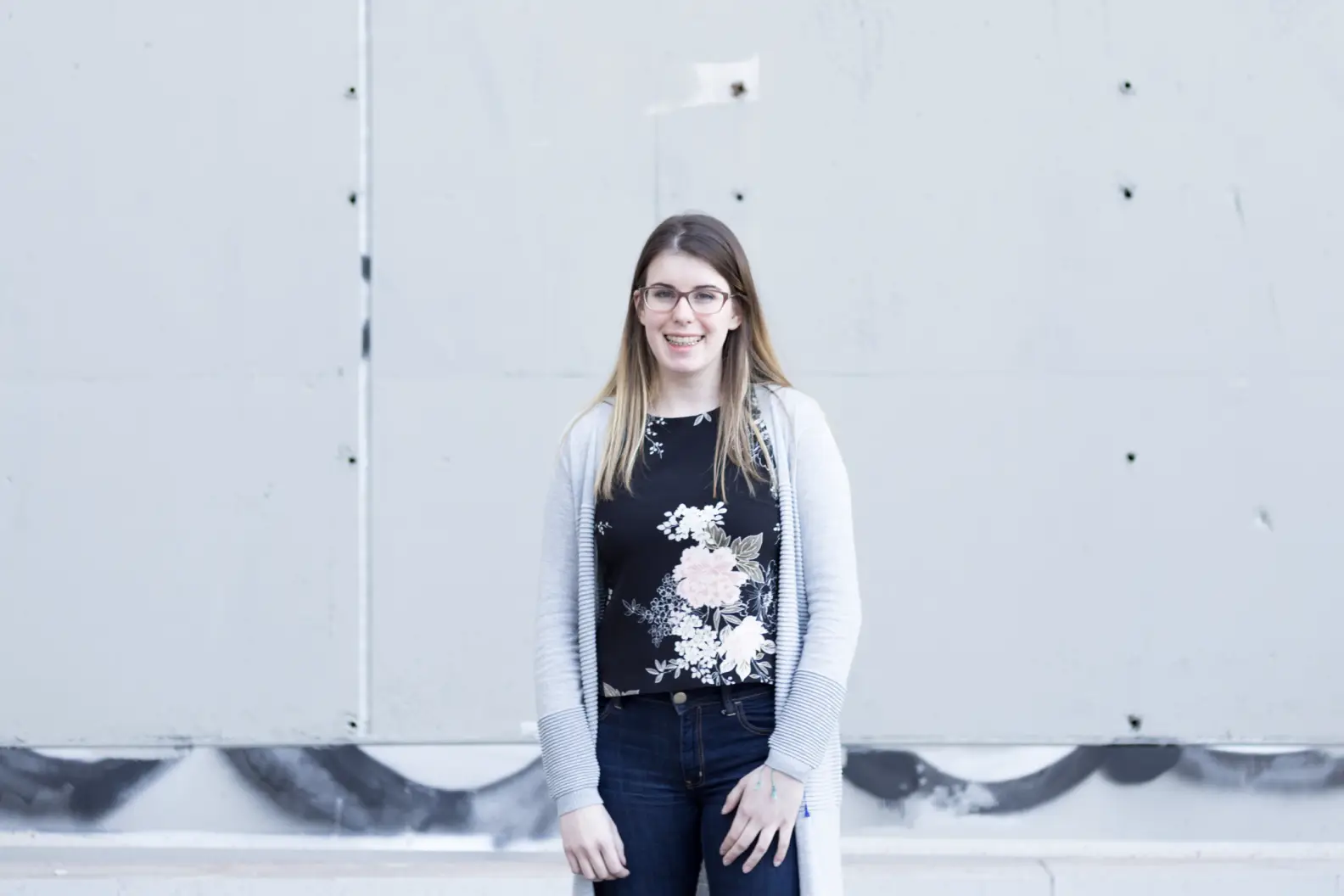
“I’d really like to go medical school and pursue a career as a trauma surgeon through the military. The funding I’ve received through Children’s Aid Foundation of Canada has offered me tremendous opportunities and the freedom from financial stress. In Grade 12, I’d just moved back from out West, which was pretty expensive, and I was working 40 hours a week while going to school full-time; basically I was busy 80 hours of the week. I had no life. I wasn’t able to get involved with my community or school, and I was always worried about making ends meet financially. It was a choice between [being homeless] and participating in extra-curricular opportunities. Getting Foundation funding allowed me to quit my job and I was able to really dive into university life. I helped start the Brock American Sign Language Club, which won Brock’s Best New Club of 2016-2017, and I also joined Active Minds, which is Brock’s mental health initiative. Mental health was so important to me after I moved out of my foster home; it became a very essential part of who I was. And, those two clubs are now my life outside of school. The support that the Foundation offered me the opportunity to [invest in more than just academics].”
“I have a diagnosis of depression and anxiety, which I tried to hide while in care. As a kid, you automatically think that things are your fault. My biological mom had left my family, and I had no idea why; I thought I did something wrong. And by not addressing those feelings, they grew and manifested and became something bigger.I didn’t want to be ‘like other foster kids’; there was a lot of self-imposed pressure to pretend like I was OK. When I left that home, those depressed and anxious feelings all spilled-out and I was forced to face them. At first, I was really ashamed, and I felt like it was so stereotypical. Looking back, I feel like dealing with those challenges led me to being 100 times more resilient than I ever thought I could be. Now my interests are in mental health and wellness.”
“Growing-up in care you might not get a great foster family or many opportunities, and you might be on your own at 15 and isolated. The Foundation’s funding and the programs it offers really help us have the same opportunities as other kids to build our support networks and grow. Yes, it’s money that helps us financially, but it’s so much more than that.”
Support young people like KATE in achieving their full potential.
